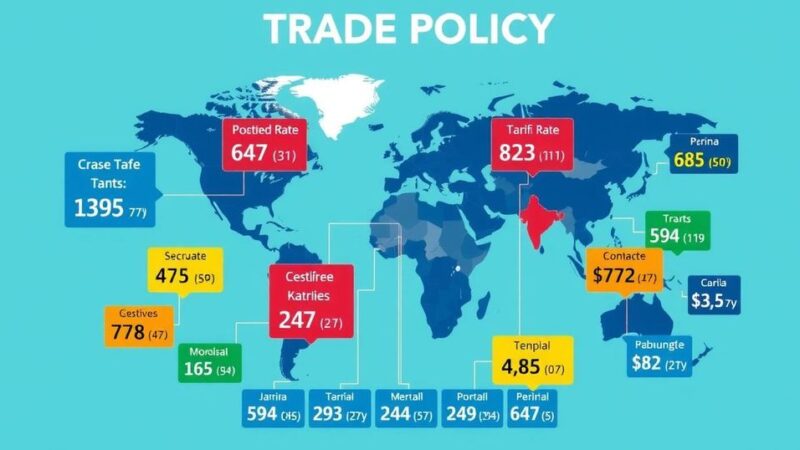In 2023, a Lagos manufacturing company struggled to find qualified chemical ecologists locally, leading to skill imports from India. The Lagos Economic Development Update indicates high job vacancy rates countered by a large pool of underqualified jobseekers. Nigeria’s unemployment rate stands at 4.3%, with millions underemployed or lacking appropriate skills for available roles. The skills gap has dire economic and social consequences, necessitating education reform and industry collaboration to enhance workforce readiness.
In 2023, a manufacturing firm in Lagos faced difficulty sourcing chemical ecologists and turned to imports after an extensive search through local educational institutions proved fruitless. This problem highlights a broader issue in Nigeria, where millions remain unemployed due to a lack of necessary skills required by industries. The 2025 Lagos Economic Development Update points out that while job vacancies are abundant, a significant portion of job seekers lack the qualifications to fill them.
The report illustrates that Nigeria’s unemployment rate decreased to 4.3 percent in the second quarter of 2024; however, the figures may not reflect the actual employment landscape due to high levels of underemployment and informal work. According to the World Bank, approximately 23 million Nigerians were either unemployed or underemployed as of 2023, with many of these being young individuals. A substantial skills mismatch also exists, as evidenced by a Jobberman Foundation report indicating that approximately 60 percent of graduates lack the competencies required for available positions.
Job seekers such as Michael Olaniyi, a 28-year-old graduate, recount the frustrations of extensive job applications that yield minimal responses due to a lack of experience and technical skills. His challenges represent a common narrative among graduates who find their academic training inadequate in today’s job market, particularly in sectors with specialized needs such as technology. Chijioke Obi, an HR manager, confirms that despite numerous applications, only a few candidates possess the requisite skills for tech roles.
Nigeria’s higher education system has experienced stagnation over the years, emphasizing traditional learning over practical skill development. As a result, there is a disconnect between educational outcomes and industry requirements, leaving numerous job opportunities unfilled. Countries like Germany and China exemplify successful models of integrating technical education to reduce unemployment, a framework Nigeria has yet to adopt effectively.
The lack of collaboration between educational institutions and the private sector perpetuates this issue. Aisha Bello, an education consultant, emphasizes that partnerships could significantly bolster internship and practical training opportunities for students. Meanwhile, accessible digital skills training remains scarce, often costly, and government-funded programs are insufficient, leaving many individuals to pursue self-directed learning as their sole option.
The widening skills gap presents dire ramifications, warns Ofem Igot, an associate professor. Youth unemployment can lead to increased crime rates, social instability, and a prolonged migration trend, as many skilled professionals seek opportunities abroad. The ongoing ‘Japa’ phenomenon exacerbates domestic talent shortages, making it imperative for Nigeria to reform its education system to better meet market demands.
To address these challenges, Igot advocates for an expansion of vocational education and stronger industry partnerships to foster practical training and curricula that prepare students for real-world applications. Furthermore, initiatives like the National Digital Economy Policy and private-sector programs from entities like Microsoft and Google aim to enhance digital skills but remain inadequate given the immense demand.
In closing, while Nigeria grapples with severe unemployment and skills mismatches, there exists potential for improvement through targeted reforms and collaborations. By equipping its workforce with the necessary tools, Nigeria can aspire to meet both current and future employment demands, thus transforming its economic landscape.
In summary, Nigeria faces a significant challenge in bridging the widening skills gap that leaves millions unemployable. While the unemployment rate has shown a decrease, underemployment and a mismatch between education and job market demands reveal deeper systemic issues. Collaboration between educational institutions and industry, alongside reforms in vocational training, is essential for equipping future employees with the necessary skills. Without decisive action, Nigeria risks falling behind in the global economy and emerging technologies.
Original Source: businessday.ng






